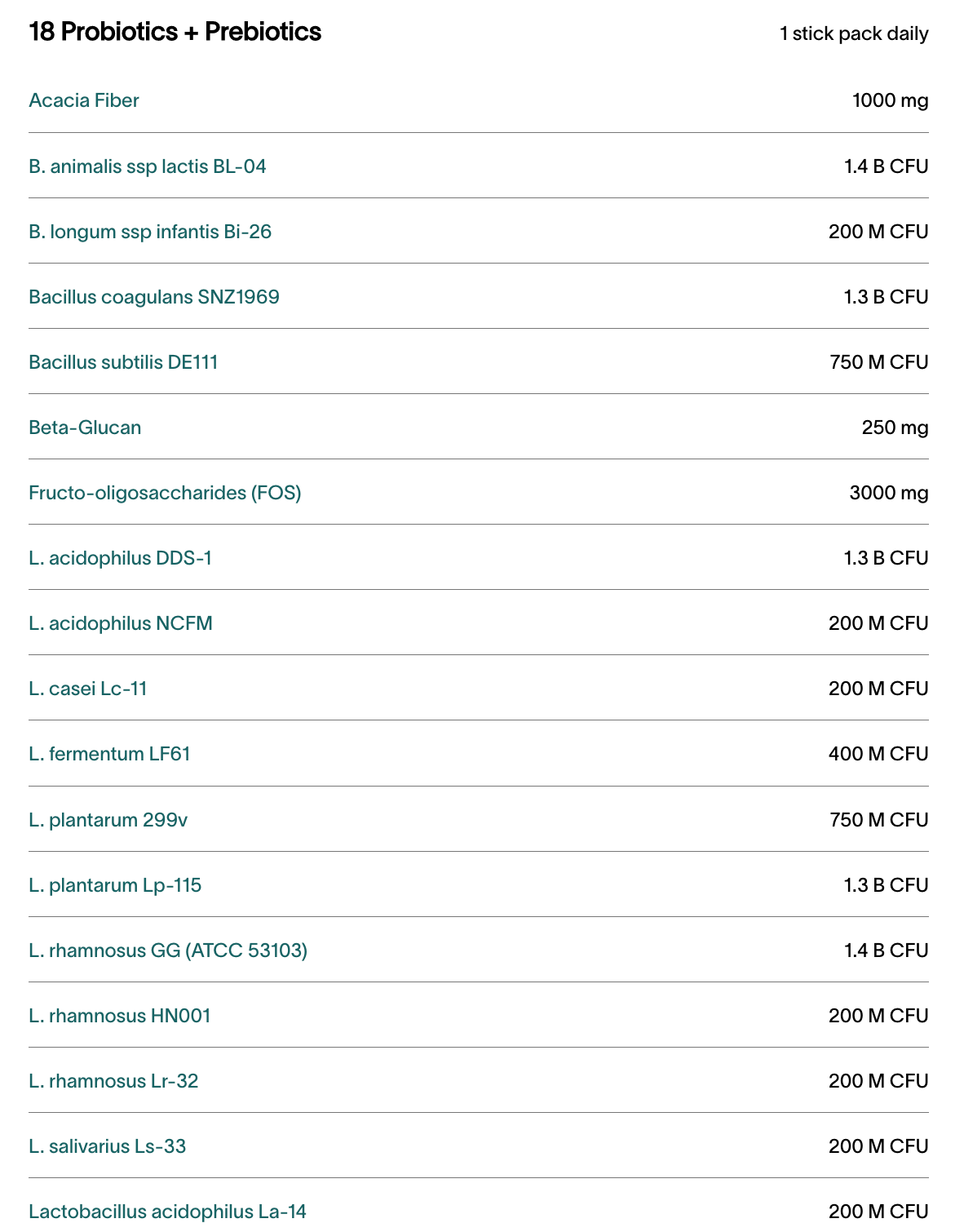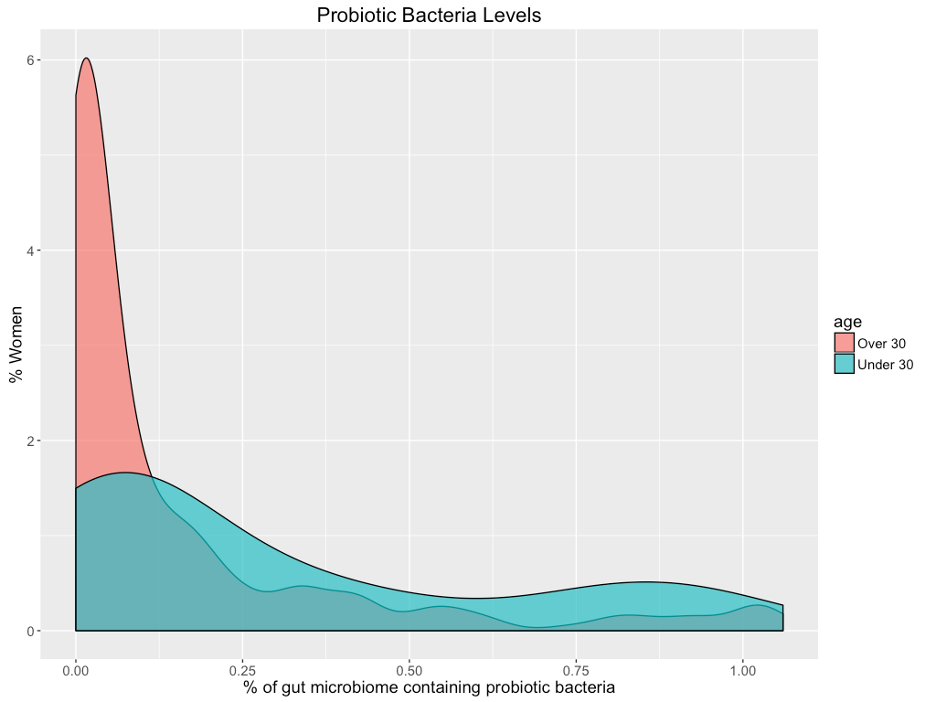Personal Science uses the techniques of science for personal rather than professional reasons. This is a weekly newsletter, published each Thursday, of topics we think are interesting to anyone who would like to be a Personal Scientist.
This week we explore probiotics.
Probiotic Supplements
For the past several months I’ve been taking daily Precision Supplements from Viome, Inc. These supplements have been custom-manufactured just for me, based on a test of the mRNA expressed in my gut, blood, and oral microbiome. Viome’s algorithms used my results to generate a custom set of pills and probiotic packets that they claim will push my body in a more optimal direction. Here are the specific probiotic supplements they sent me:
There is reasonable scientific evidence that each of these microbes is more abundant in healthy people — and missing or in lower amounts among those who are less well — so the claim is that by adding them to my diet I will improve my health.
But does it work?
The best way to tell — the Personal Science way — would be to measure myself before and after based on some quantitative wellness metric. That’s the efficacy approach and it’s ultimately the one that matters: did the probiotic improve something? Since I’m already quite healthy, I don’t have a ready metric to tell whether the supplements made a significant difference, so I couldn’t think of a way to pursue this option.
The next best way is to measure the probiotic abundances directly. While this is one step removed from a health metric, it can at least show that the probiotic is making a difference to my microbiome.
Testing My Microbiome With Tiny Health
To find out, I tested my gut microbiome after I had been taking the Viome supplements daily for a month. I used the new $199 “Adult Gut Health Test” diagnostic from https://www.tinyhealth.com/ to get a Whole Genome Sequence (WGS) of my gut microbiome. (Look for a full review of my experience with Tiny Health in an upcoming publication).
Results: Of the 18 probiotics and prebiotics in my supplements, only two were detected in my gut. While these two microbes are nice to have, none of the other dozen or so appear to have survived the trip through my gut, and I have no way of knowing whether these two may have been there already, even without the probiotics.
Bottom line: unfortunately I don’t see good evidence that the Viome probiotics had any effect on my microbiome. I suppose it’s possible that the microbes I ingested had an effect earlier in my gastrointestinal tract, perhaps taking up permanent residence someplace not detectable by this test. Maybe the supplements benefited me in some way I’m unable to measure — e.g. maybe they killed off something else that otherwise was bad for me. But at a cost of about $2/day, I don’t see any reason to continue taking the probiotics and have since discontinued my subscription.
See the full report from Tiny Health, as well as all my microbiome tests at richardsprague.com/microbiome
Women and Probiotic Bacteria Levels
Incidentally, the probiotics in my supplement do seem related to youth and health in ways that are hard to dismiss. Here’s a chart we made from a sample of several thousand women who took a simpler, but still accurate microbiome test that shows the levels of key “probiotic bacteria”. Interestingly, the same chart for men is much flatter and there is no obvious shift after age 30. This data doesn’t contain information about pregnancy or child-rearing but I bet most of the shift is related to child-bearing.
If you are a woman over 30, you might find probiotics more helpful than I did. Other than the cost, there probably is no downside, so I think it’s worth experimenting to see if you can notice an improvement in your health.
About Personal Science
Personal Scientists are skeptical about everything. It's in our motto: Nullius in verba, the 1660 motto of the Royal Society: “take nobody’s word for it.”
Please let us know if there are other topics you’d like to cover, or if there’s something interesting you’ve discovered with Personal Science.






